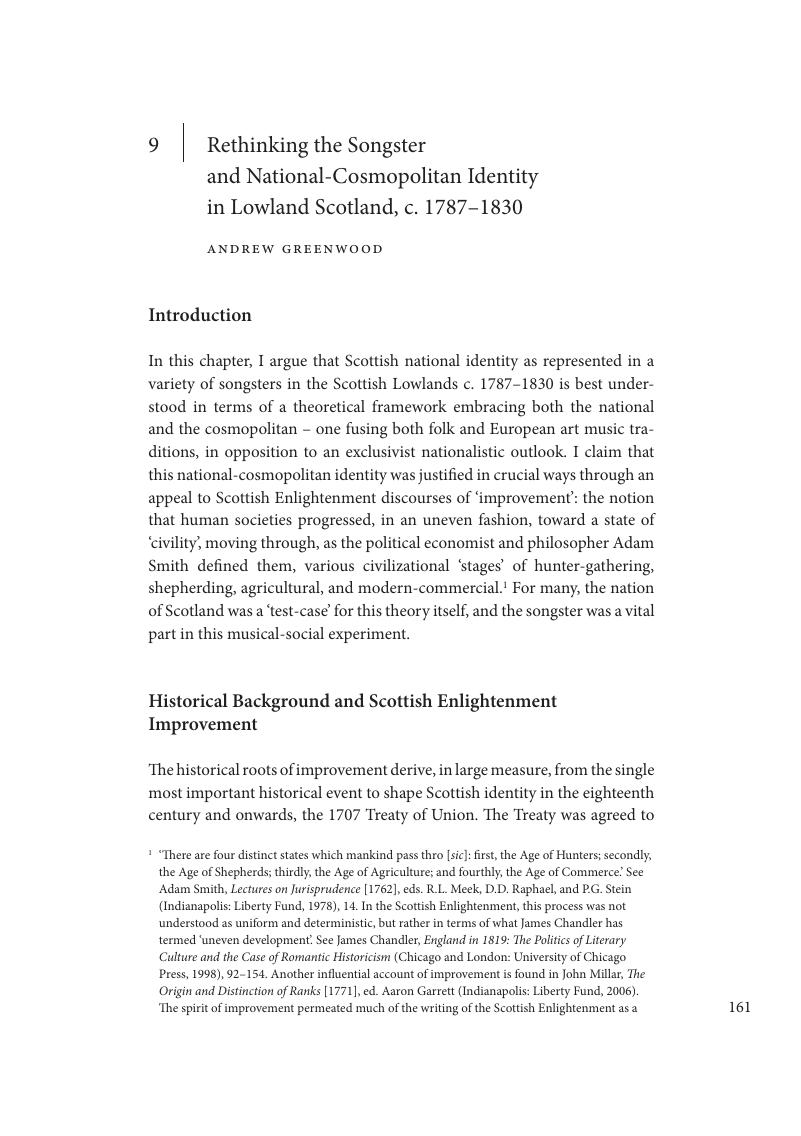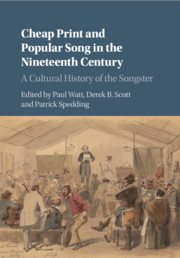Book contents
- Cheap Print and Popular Song in the Nineteenth Century
- Cheap Print and Popular Song in the Nineteenth Century
- Copyright page
- Contents
- Figures
- Tables
- Contributors
- Acknowledgements
- 1 The Nineteenth-Century Songster: Recovering a Lost Musical Artefact
- Part 1 Production, Function and Commerce
- Part 2 Politics
- Part 3 Nation, Place and Purpose
- 9 Rethinking the Songster and National-Cosmopolitan Identity in Lowland Scotland, c. 1787–1830
- 10 The Blackface Songster in Britain
- 11 Popular Songsters and the British Military: The Case of ‘The Girl I Left Behind Me’
- 12 Australian Songsters and the Australian Folk Song Movement
- Index
- References
9 - Rethinking the Songster and National-Cosmopolitan Identity in Lowland Scotland, c. 1787–1830
from Part 3 - Nation, Place and Purpose
Published online by Cambridge University Press: 07 April 2017
- Cheap Print and Popular Song in the Nineteenth Century
- Cheap Print and Popular Song in the Nineteenth Century
- Copyright page
- Contents
- Figures
- Tables
- Contributors
- Acknowledgements
- 1 The Nineteenth-Century Songster: Recovering a Lost Musical Artefact
- Part 1 Production, Function and Commerce
- Part 2 Politics
- Part 3 Nation, Place and Purpose
- 9 Rethinking the Songster and National-Cosmopolitan Identity in Lowland Scotland, c. 1787–1830
- 10 The Blackface Songster in Britain
- 11 Popular Songsters and the British Military: The Case of ‘The Girl I Left Behind Me’
- 12 Australian Songsters and the Australian Folk Song Movement
- Index
- References
Summary

- Type
- Chapter
- Information
- Cheap Print and Popular Song in the Nineteenth CenturyA Cultural History of the Songster, pp. 161 - 183Publisher: Cambridge University PressPrint publication year: 2017
References
Songsters Referred To in the Text
References
- 1
- Cited by



